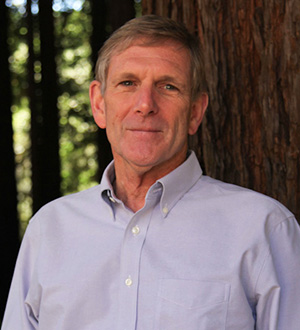Campus News
In Memoriam: J. Casey Moore (1945–2020)
Casey Moore, professor emeritus of Earth and planetary sciences, died on Wednesday, March 11.

I’m sad to report the passing of my good friend and long-time colleague Casey Moore, professor emeritus of Earth and planetary sciences. Casey was born in Los Angeles in 1945 and grew up in Escondido. He graduated from UC Santa Barbara in 1968 and got his Ph.D. from Princeton University in 1971. He joined the faculty at UC Santa Cruz as an acting assistant professor in 1970 and wrote his thesis while teaching his first year of classes.
Casey’s early research involved extensive field work in Alaska, where he pioneered field observations of uplifted sedimentary rocks that were deformed in subduction zones. He later pioneered the study of scientific drilling into active accretionary prisms at the front of subduction zones, and he made some of the first observations using the submersible ALVIN of cold seeps with chemosynthetic biological communities living at the surface of such prisms. That work provided his long-time focus on the role of fluids in subduction zones and their effects on earthquake generation. These studies have formed the basis for a whole generation of forefront science being carried out by the marine geological and geophysical communities.
Casey played a key role in the justification for the Japanese to build a massive drill ship capable of drilling deep into subduction zones and into the region of earthquake generation along the slip surface of subduction zones, and he participated as a co-chief scientist on several of those expeditions. As a tribute to Casey for this effort, he was awarded the International Prize from the Geological Society of Japan in 2011. Other awards include the Shepard Medal for Excellence in Marine Geology (2013), and Fellowship in the Geological Society of America (1984) and the American Geophysical Union (2013).
Casey’s work always involved an active and committed group of graduate students and post-docs. He could often be seen in the lab working one-on-one with a student, and his good-natured laughter usually permeated the hallways. His former students and post-docs now make up a significant number of the researchers and faculty carrying out subduction zone research across the country, including those in charge of major programs. The success of his mentees has been legendary, and they continue to infuse the field with the same excitement and enthusiasm that Casey showed throughout his career. He was a joy to have as a colleague, and his presence never failed to bring a smile to the faces of anyone who came into contact with him. Though not one to take on a lot of administrative jobs, Casey was in many ways the heart and soul of the department.
Casey is survived by his wife Hilde Schwartz, his children Jay Moore and Allison Aguilar (Armando), his step-daughter Maya Wildgoose (Alex), his grandchildren Alex, Andrew, Katie and Khloe, his great grandchildren Brayden and Brody, his sister-in-law Heide Schwartz, and his brother Patrick.
Donations may be made to the Casey Moore Fund, which supports graduate students in the Earth and Planetary Sciences Department at UCSC as they conduct thesis-related research.